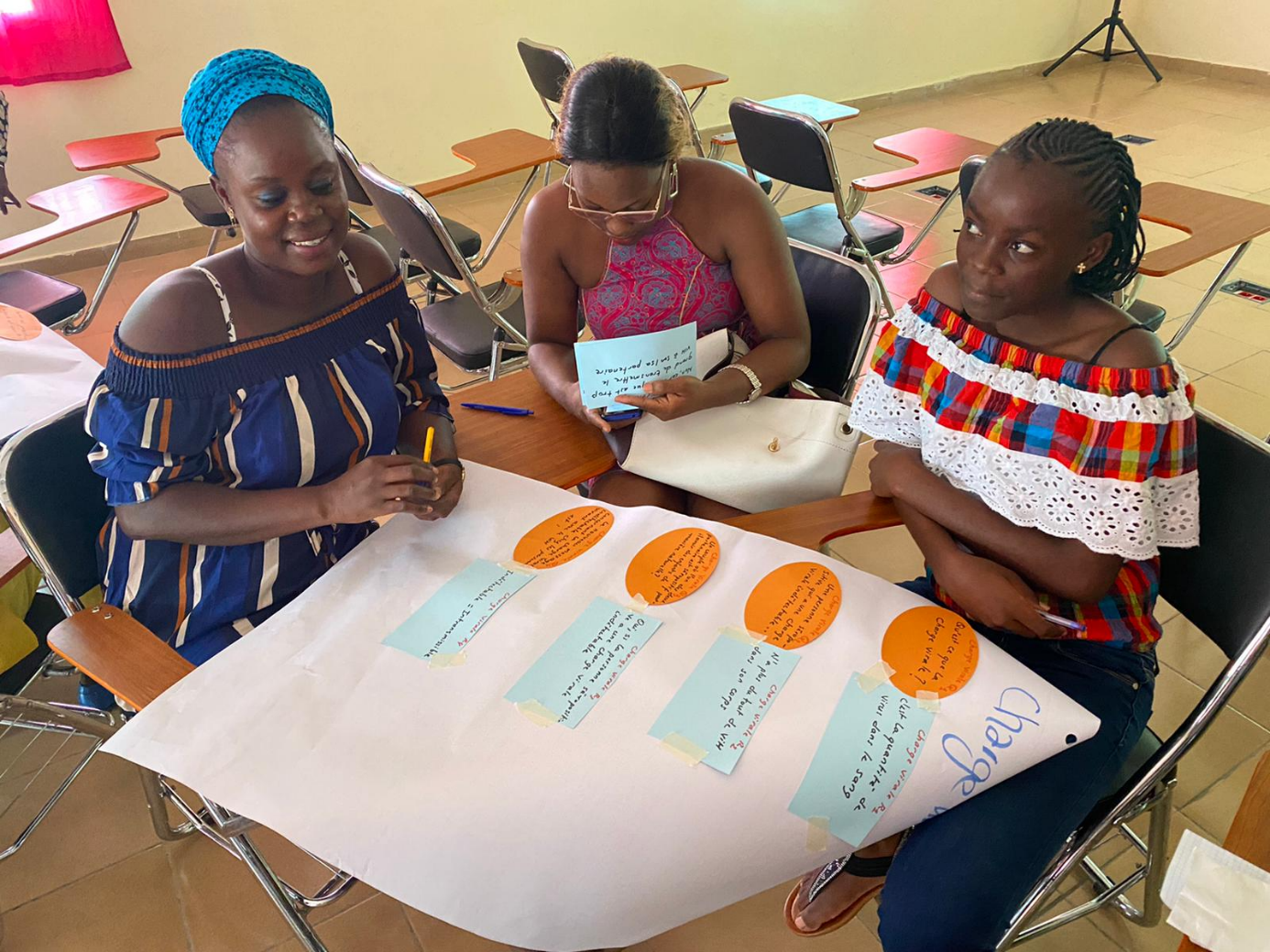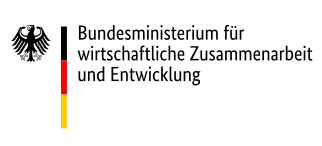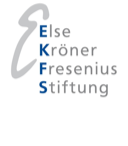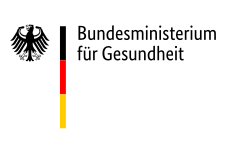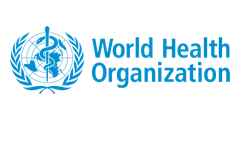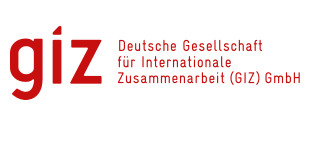
Maternal and child health: active in rural areas of Gabon
Mothers and their children in Gabon have a high risk of not surviving pregnancy and birth. The hospital partners Dr. Ghyslain Mombo-Ngoma from Lambarené and Saskia Davi from Hamburg want to change that.
"Expanding networks to promote maternal-child health in rural Gabon is the ultimate goal," says Dr Ghyslain Mombo-Ngoma. The doctor works in Lambaréné, a medium-sized town in the interior of the central African nation. The city lies a few kilometers south of the equator and is divided by the Ogooué River. Ghyslain Mombo-Ngoma heads the clinical department at the Centre de Récherches Médicales de Lambaréné (CERMEL), which is attached to the Albert Schweitzer Hospital. CERMEL is the most important research and training center in Central Africa. In Lambaréné and the surrounding provinces, Ghyslain Mombo-Ngoma works together with his colleagues at CERMEL in the field of mother-child care, among other things. They work closely with staff from the Ministry of Health to provide better care for women and their children before, during and after birth.
High maternal mortality in Gabon
Providing care for mothers and their children plays an important role in health care worldwide. "In countries where there is reliable, affordable, quality health care for all, women and babies can survive and thrive," Dr Tedros Adhanom Ghebreyesus, director-general of the World Health Organization (WHO), has stressed on the occasion of the 2019 published report "Levels and Trends in Child Mortality". This, he said, is the strength of universal health coverage. According to WHO figures, 252 mothers die for every 100,000 deliveries in Gabon. In comparison, the figure for Germany is only seven. Infant mortality is similarly dramatic: On average, 20 infants per 1,000 births do not survive in Gabon. In Germany, by contrast, the mortality rate is two infants per 1000 births (source: WHO data Gabon, Germany).
Partnership thrives on communication
Another aspect of mother-child health is the prevention and treatment of sexually transmitted diseases. Passing on knowledge about HIV and associated co-infections is one of the main concerns of the project "Reducing vertical HIV transmission through improved screening in prenatal care". CERMEL, together with the Bernhard Nocht Institute for Tropical Medicine Hamburg (BNITM), trains obstetricians, doctors and nurses on how the HIV virus is transmitted from mother to child. The trained employees from Lambaréné and two other provinces act as multipliers: They pass on their knowledge to their colleagues in several hospitals. The two-year trainer project of the Gabonese and German partners is supported by the GIZ Hospital Partnerships funding programme a sum of 50,000 euros. Since August 2019, eight professionals have been trained sucessfullly as multipliers in this way. "The main goal of the project is 'train other trainers'. It thrives on communication," says Saskia Davi, the German hospital partner and medical project coordinator . She has been in Gabon since April this year and works together with Ghyslain Mombo-Ngoma in the Clinical Research Group at BNITM, headed by Prof. Michael Ramharter.
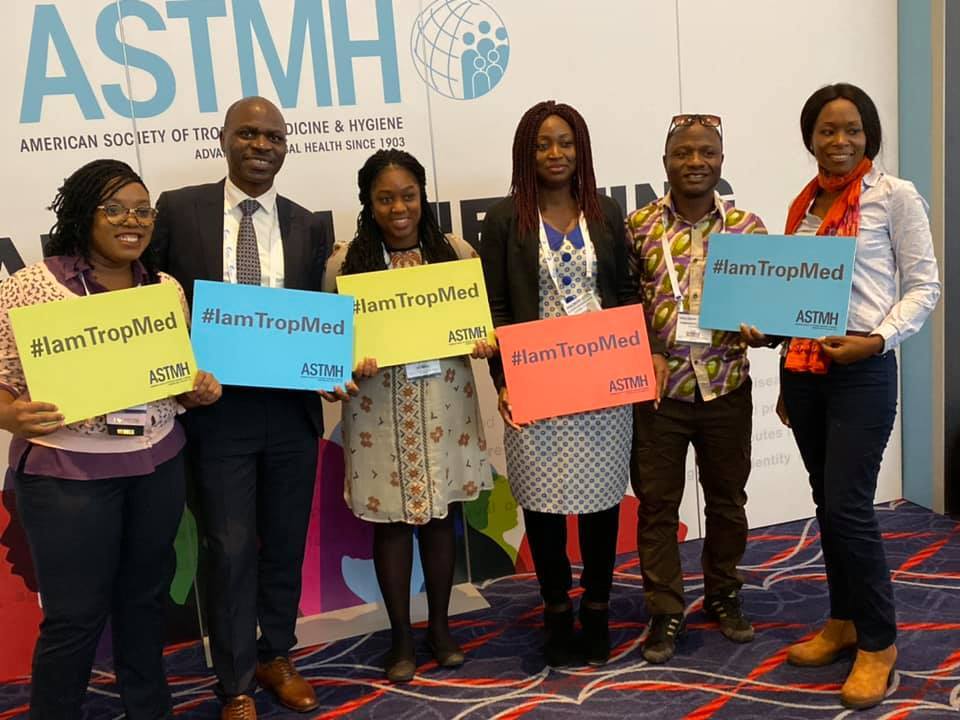
Travel restrictions due to Covid19
The Covid19 pandemic has made it much more difficult for them to conduct the trainings, Ghyslain Mombo-Ngoma confesses. The physician, who completed his medical studies in Gabon and earned his doctorate in the Netherlands, subsequently trained in epidemiology at the London School of Hygiene and Tropical Medicine, among other institutions.
In the wake of the pandemic, there were not only international travel restrictions, but Gabon itself banned them within the country, his colleague Saskia Davi says. "Travel between Gabonese provinces was no longer possible. This meant that we could only continue to work with the hospitals in Lambaréné and could only maintain telephone contact with the others or communicate via WhatsApp," she notes. The medical project coordinator believes that this does not do the project justice. Saskia Davi will remain in Gabon until the end of the year and will then have been there for eight months at a time. She now knows her Gabonese partners very well; this is her fifth stay in the country. All hospital partners are trying to complete the project as the Covid situation allows, says Saskia Davi, who has been studying medicine since 2015 and spent a year abroad in Gabon from 2018-2019 for her doctoral thesis.
"We are in very close contact"
Beyond the mother-child project, the two hospital partners work together in the Clinical Research Group. Ghyslain Mombo-Ngoma, who conducts research in the fields of epidemiology and immunology of infectious diseases, is a medical and research associate in the group. He was recently appointed professor at the University Medical Center Hamburg-Eppendorf. Ghyslain Mombo-Ngoma heads the Clinical Operations research group there. Together with his colleague Saskia Davi, he shares the view that the partnership is worthwhile. "We are in very close contact," Saskia Davi tells enthusiastically. For Ghyslain Mombo-Ngoma, the partnership between CERMEL and BNITM means exchanging and learning from each other on a human level between Gabonese and German cultures. In addition, he emphasizes the importance of their joint scientific research.
Saskia Davi appreciates the GIZ Hospital Partnerships funding programmes. "I think the program is good because it gives the opportunity to really strengthen capacity building and resources. At the human resource and institutional level." In addition to this funding, CERMEL has had other funding relationships for years, Ghyslain Mombo-Ngoma reports. He observes an interesting development: while earlier programmes were more research-oriented, the focus now is on implementing findings from previous research, he says. "The next step now is to comprehensively monitor and evaluate what exactly has been implemented," he says.
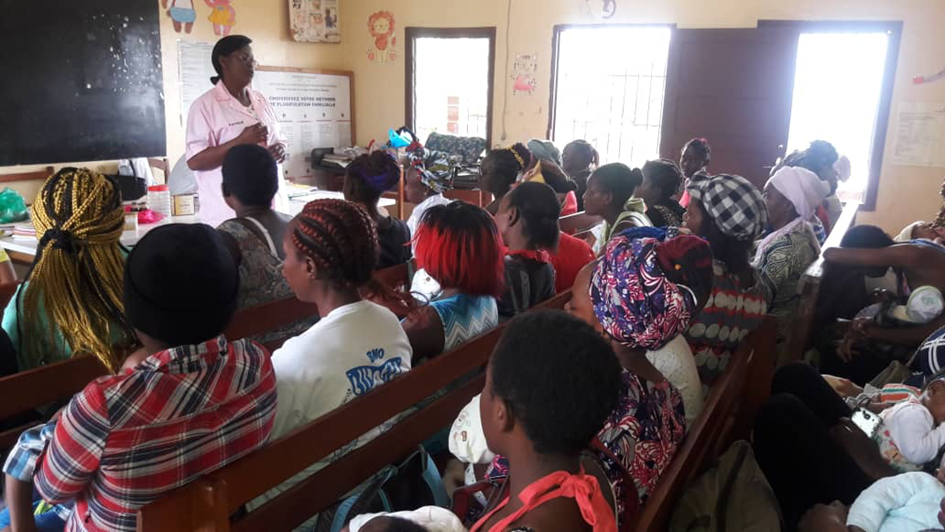
Support through BMZs special funding
In addition to the mother-child project, the Deutsche Gesellschaft für Internationale Zusammenarbeit (GIZ) GmbH is providing targeted support through a Covid19 special call for proposals. The Hospital Partnerships funding programme tendered funds for this purpose in the summer of 2020 so that hospital partners could provide direct assistance on site. The German-Gabonese project was selected as eligible for funding with its application for pandemic containment. This enabled the doctors to purchase protective equipment and necessary laboratory materials. The two projects between CERMEL and BNITM will each receive 150,000 euros in funding. Health workers can now better protect themselves from corona infection, especially in the rural areas of central Gabon.
The German Federal Ministry for Economic Cooperation and Development (BMZ) had responded to the global health catastrophe with the special funding of 4.5 million euros.
Hard hit
Ghyslain Mombo-Ngoma says that the inhabitants of the Lambaréné area and his own team were hit hard by the second wave. In March and April of this year alone, 25 members of his team were infected with the Covid19 virus. CERMEL tests people from Lambaréné and the three surrounding regions for COVID-19. The employees apply so-called Standard Operating Procedures (SOPs), such as hygiene and sanitation measures. In rural areas, there is often a lack of diagnostic capacity, says Ghyslain Mombo-Ngoma. Therefore he would like to expand these. But passing on knowledge in a professional manner is also important, he says. "In order to reach people, we have started to broadcast on the radio and to meet with the heads of the communities. We want that people understand better what Covid19 is and how to avoid its risks," says Ghyslain Mombo-Ngoma. ‘Sensitize and sanitize' is important in this context, says the hospital partner.
Better screening for pregnant women in rural areas
In the coming months, CERMEL staff, together with Saskia Davi and other colleagues from BNITM, plan to open a risk screening for expectant mothers and their children in the village of Sindara, southeast of Lambaréné. Sindara is located about one and a half hours from Lambaréné, along the Ngounie River. Through it, Sindara is easily accessible to the surrounding villages. "It’s easier for pregnant women to get there than to go to Lambaréné," says Saskia Davi.
Together with the trained multipliers, the hospital partners would like to offer screening for infectious diseases, such as HIV and malaria, but also for non-communicable diseases. And perinatal care in the communities is also on their agenda. So the next project is already in the starting blocks.
